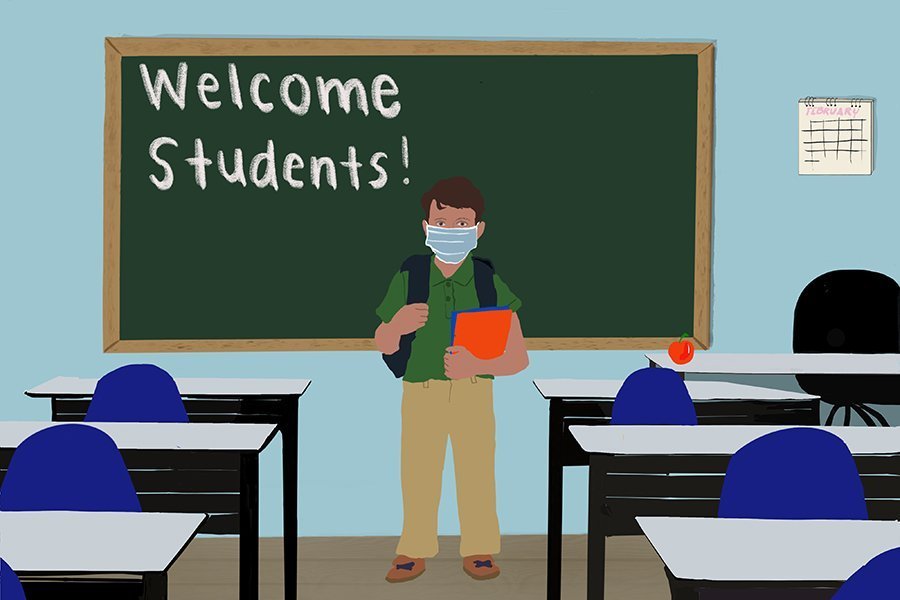Students and faculty concerned over mental and physical well-being during Wildcat Wellness
Daily file illustration by Emily Sakai
Students and faculty struggle to adjust to Wildcat Wellness. Others are less excited for in-person learning.
January 13, 2022
Less than a month ago, Elena Lanza, interim director of the Spanish language program, was preparing lesson plans and department meetings for Winter Quarter in-person instruction.
But on Dec. 20, 2021, Northwestern announced instruction would move online for the first two weeks after Winter Break as part of Wildcat Wellness, a mandatory quarantine period. The sudden transition was very difficult for Lanza’s department, especially for her colleagues who looked forward to spending the break relaxing with their families, she said.
“Everybody was very excited to be back in the classroom, to be back in person with students,” Lanza said. “Now, being back online is like, ‘Oh, just back to the height of the pandemic’ mentality.”
Despite the sudden shift, Lanza said virtual teaching last year prepared her department well.
Third-year history Ph.D. student Hope McCaffrey said she felt prepared for virtual teaching because she started working as a teaching assistant during the pandemic. However, because almost all her teaching experience has been online, she said she’s concerned she won’t be able to adequately teach in an unmasked, pre-pandemic setting.
“I feel like, in a sense, I’ve been able to always have a level of distance between myself and students when I’m teaching,” McCaffrey said. “Because you either have the computer or you have a mask and it gives you a crutch.”
McCaffrey said she opposes a return to in-person learning after Wildcat Wellness, especially after NU announced its highest number of COVID-19 cases ever just last week. She said her top priority is to stay healthy.
Lanza said many of her colleagues express the same concerns. Some are not only worried about their personal health but also for their families.
“Right now, my mom is helping me take care of my child while I am navigating (teaching from home), and I’m concerned about her,” Lanza said. “She’s older, she’s fully vaccinated … but you don’t know how the virus is gonna affect you.”
Medill sophomore Carly Witteman said while she understands the unpredictability surrounding COVID-19, she doesn’t feel attending class is the biggest reason students are getting sick. Instead, she said she thinks students are spreading the virus much more through unmasked events like parties.
Witteman said a prolonged Wildcat Wellness would be disheartening and disappointing for her and her friends. She said she can tell students are less excited to learn and professors didn’t have enough time to prepare for virtual classes. The limited range of social interaction is also taking a toll on her mental health, she said.
“I was with my family for three weeks, and I immediately went to being alone and classes starting, and that was really difficult,” Witteman said. “I’m just excited for when we can sit in dining halls again. Because with isolation, not seeing friends, missing your family and all these academic classes starting, it’s very much the perfect storm.”
McCaffrey also said the transition back to virtual learning revived old feelings of disappointment. She said learning relies so much on people being together and interacting.
When teaching online, McCaffrey said she notices students don’t want to partake in discussions as frequently and aren’t as engaged as they are in person.
“I do feel like we have all been robbed of a big part of our experience, which just makes me sad and gives me anxiety,” McCaffrey said.
Email: [email protected]
Twitter: @joannah_11
Related Stories:
— NU to start in-person instruction Jan. 18 after record number of COVID-19 cases


